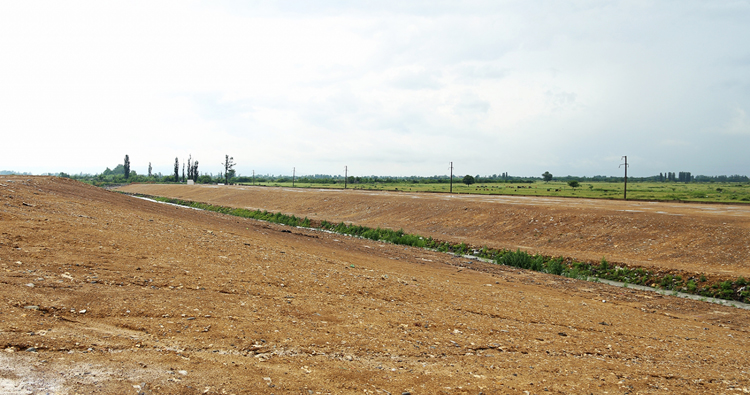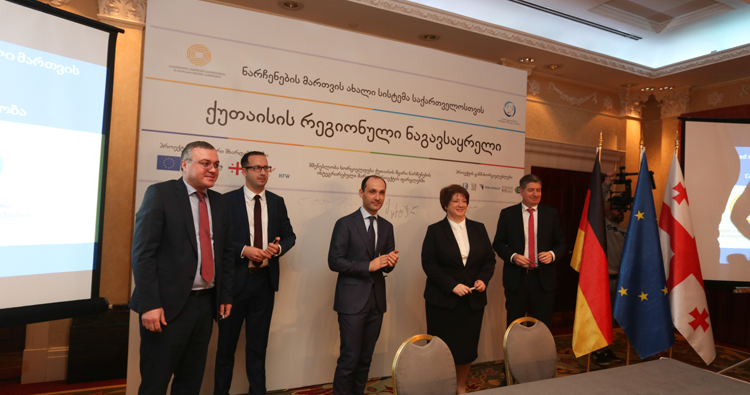8 regional landfills worth €26 mln to be built in Georgia:
First one coming to Kutaisi by 2020

This is a current Kutaisi landfill, which will be substituted by new sanitary landfill in 2020. Photo: EU Neighbours.
A new international standard landfill will be built in Georgia’s third largest city of Kutaisi to reduce the effects of waste pollution and to introduce modern standards of waste management in the country.
The Solid Waste Management Company of Georgia French-Slovenian consortium Sade Riko signed an agreement today for the construction of the first regional landfill in Georgia.
The construction of the Kutaisi landfill will be launched in March 2019 and will be completed in about a year.
In total eight regional landfills, worth €26 million will be built in the country by the end of 2023, announced the Minister of Regional Development and Infrastructure of Georgia Maia Tskitishvili.
The first regional landfill will be built in Kutaisi and the cost of the project will exceed €7 million.

A presentation of the regional landfills project was held today, where Infrastructure and Agriculture ministers and other officials delivered speeches. Photo: Ministry of Infrastructure.
As the new landfill is a regional project, not only Kutaisi residents, but also about 700,000 residents of Imereti and the neighbouring Racha-Lechkhumi and Kvemo Svaneti regions will benefit from the sanitary landfill.
The donors of the project are Germany’s KfW Development Bank and the EU’s Neighbourhood Investment Facility grant.
Overall, Kutaisi solid management project will be implemented by the Solid Waste Management Company which was created in Georgia in 2012. The company was managing 54 landfills in total but as they were not meeting the EU standards 23 of them were closed and 31 were rehabilitated.
It is expected that the remaining sites will be closed by 2023 once the eight new regional landfills are opened in Georgia.
Around 900,000 tonnes of waste is generated annually in Georgia and more than 75% of it is estimated to end up in landfill sites, reads an article by EU Neighbours.
 Tweet
Tweet  Share
Share